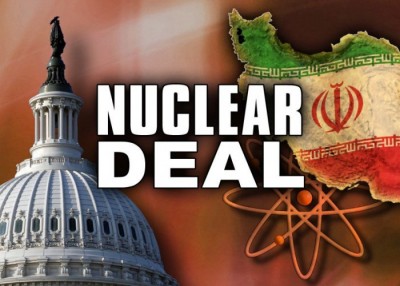From Fait Non-Accompli AUG 3, 2015, VOL. 20, NO. 44 * BY William Kristol
"The Iran deal turns out to be so no good, so very bad, so awfully ugly, that there is a chance-an outside chance-that a congressional process accepted by the [U.S.] administration because it seemed to virtually guarantee the deal's survival might actually kill it instead.
The administration is pulling out all the stops. The left is mobilizing. Pressure is being applied. But what's striking is how many congressional Democrats are balking. Serious Democrats look at the deal-at its failure to stop Iran's nuclear program, at the weak verification provisions, at the precipitous and massive sanctions relief-and can't quite believe the horror the administration is asking them to approve.
The public can't quite believe it either. The Pew poll this week had those Americans who knew something about the deal-a strikingly high 79 percent of the public-disapproving 48 to 38 percent. When has this happened before? A president signs a deal that purports to limit arms and reduce the risks of war, he makes his case to the American people against scattered voices of criticism and dissent-and he doesn't even start out ahead. A Washington Post poll that framed the deal in a way more favorable to the administration had only 56 percent approval. Most analysts experienced in these kinds of fights expected the deal to start out way ahead in public opinion, and then perhaps face some erosion as the debate proceeded. Instead, opponents are at least even at the start. And, by the way, the critics are so far handily winning the debate on the merits.
Still, is it really possible that over a dozen Senate Democrats and almost 50 House Democrats will defect from the president and vote both to disapprove and then to override his veto? Yes. It's possible, if not yet likely. And the possibility will grow if opponents energetically press their case. They will need to explain, among other things, that the sanctions regime isn't doomed if the deal is defeated. It is true that some damage will have been done by the United Nations action. But a Congress that insists on retaining U.S. sanctions will leave the next president-whether a Democrat or a Republican-with a chance to marshal the international community to continue the pressure on Iran and perhaps to negotiate a better deal.
Meanwhile, what about that U.N. vote? Congress owes it to the American people to disapprove the deal because it is bad and dangerous, but also precisely to establish the principle that the American people are the masters of American foreign policy, not the United Nations."
Please pray that the U.S. Congress will be able to overturn the recent nuclear deal if it will endanger the Middle East nations along with other countries by giving Iran, the world's leading sponsor of terrorism, over 100 billion in sanctions relief as well as a path to the development and deployment of nuclear weapons. This is a crucial matter of international security.
